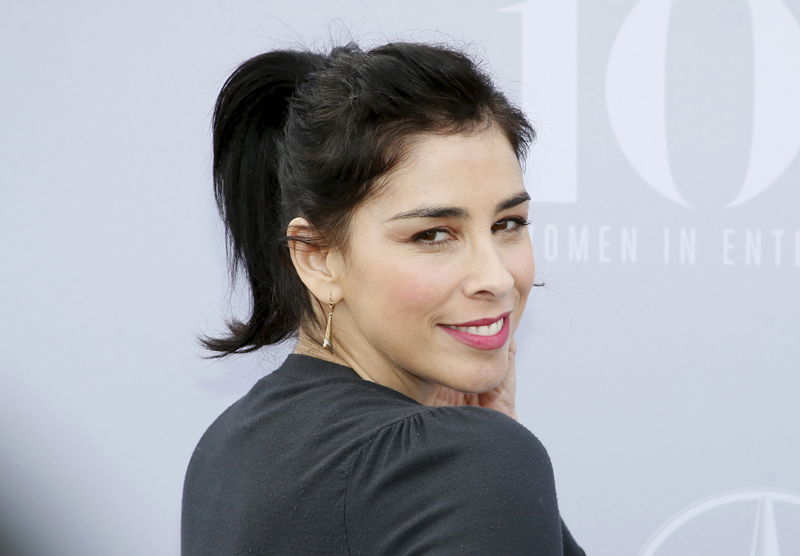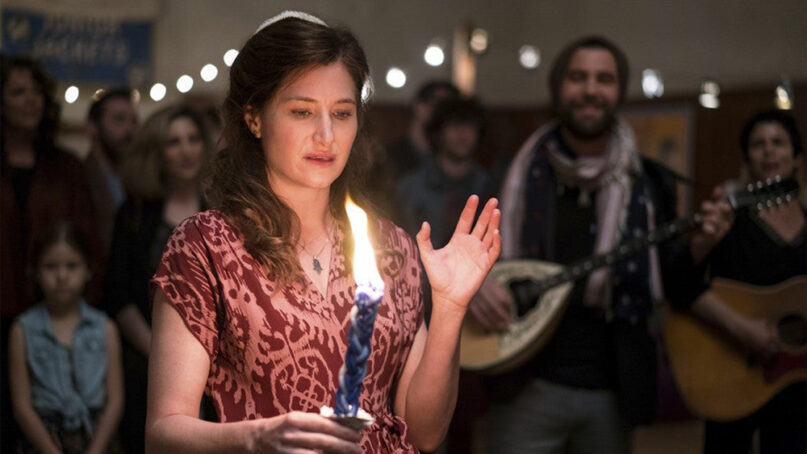(RNS) — I was never a fan of the late Joan Rivers.
Nevertheless, I would have looked forward to the television series based on her life.
Except, it is not happening.
First, the network was not able to secure the rights to her story.
But, all along, there had been a quieter controversy simmering in the background.
It was simply this: The actress slated to play Rivers was Kathryn Hahn, who is not Jewish. Some observers thought that was wrong — that only a Jewish actress could play Rivers.
It would not have been the first time Hahn would be portraying a Jewish woman. She played Rabbi Raquel Fein in the Amazon Prime series “Transparent.” She was my favorite character. I felt that I knew Rabbi Fein. I was sure we had attended several rabbinical conferences together. That is how good she was in the role.
Not to mention the most famous Jewish woman played by a non-Jewish woman: Midge Maisel in Amazon Prime’s “The Marvelous Mrs. Maisel,” played by Rachel Brosnahan.
Again, flawless in every way.
But there is a new sensitivity afoot in the entertainment business. Increasingly, casting directors are cautious about characters being portrayed by actors who are not like them — in terms of race, disability and sexual orientation.
Enter the term “Jewface.” It is the creation of the comedian Sarah Silverman, who deliberately invokes the old, hateful practice of white players donning blackface makeup in order to play Black people.
“I think acting is acting and I get that all this identity politics is annoying. I love watching an actor play a character that is wildly different than who they are — but right now, representation f-ing matters. So it has to finally also matter for Jews as well,” Silverman said.

Comedian Sarah Silverman poses at The Hollywood Reporter’s annual Women in Entertainment Breakfast in Los Angeles on Dec. 9, 2015. Photo by Danny Moloshok/Reuters
British author David Baddiel, whose book “Jews Don’t Count,” is a blistering account of antisemitism, would agree.
“In an ideal world, everyone could play anyone. In the world where we live, more and more, it simply is the case that minority parts have to be played by actors from that minority. … So if Jews are somehow exempt from that stricture you have to ask why? And the answer is: because Jews don’t count.”
In my honest opinion, this is the wrong fight.
Consider the role of Shylock in “The Merchant of Venice.” The character itself is rooted in classic antisemitism. Almost every single actor who played Shylock — including Junius Brutus Booth, his son Edwin Booth, John Gielgud and Laurence Olivier — was a gentile.
You might say having gentiles play Shylock was an act of (let me invent a term) theatrical colonialism, in which gentiles exerted dramatic power and objectified Jews. You might say it would have been better if Jews had played Shylock, and you would be right — had there been a sufficient number of Jewish actors in the bygone days of theater.
But even when there were ample numbers of available Jewish actors, Patrick Stewart, Al Pacino and F. Murray Abraham — gentile actors, all — played Shylock. As have Jewish actors — famously, Jacob Adler, and Dustin Hoffman.
Shylock was an equal opportunity role.
Consider Tony Shalhoub. He is a great actor. His background is Lebanese Christian.
He played the Egyptian police band leader in the musical “The Band’s Visit.” But he also played Midge’s father in “The Marvelous Mrs. Maisel.”

Actors Rachel Brosnahan, left, and Tony Shalhoub in “The Marvelous Mrs. Maisel.” Photo courtesy of Amazon Prime
Yes. An Arab American played an Ashkenazic Jewish man.
“I always feel that we’re actors,” Shalhoub told the New York Post. “We were trained to — at least I was — to not play myself, to play characters. And so it’s troubling to me that they’re limiting actors.”
Consider Desmond Barrit’s reflection on the experience of playing Shylock: “My first thought when I was asked to play Shylock was, ‘But I don’t look Jewish!,’ which is bizarre. We all have our ideas of what a Jewish person should look like, and probably most of those ideas are antisemitic.”
Bingo. Jewish identity politics would remind us Jewish is not a race, and therefore, anyone can “look Jewish.” Which means Jewish does not look like anything or sound like anything.
We can wish that only actors who are A will play characters that are A.
But we will not like it. We will not like it when only Italians can play Italians; French play French; Jews play Jews — and, wait for it, Christians play Christians.
I do not think we want to go there.
Finally, let me cut Silverman and Baddiel a little bit of slack. Let me try to put their concerns into a larger perspective.
I understand their concerns. We are living in a time of heightened sensitivities and the two are simply saying Jews are not to be erased from those sensitivities.
I am sensitive to such issues — even hypersensitive, touchy and pugnacious. I demand that Jews count. I protest every act of erasure and especially self-erasure.
Silverman and Baddiel see what we see. They see a rise in antisemitic acts and disproportionate criticism of Israel.
So, yes, I get it. The Jews are hurting and we are feeling vulnerable and a little battered.
So, Silverman and Baddiel are not wrong. They are merely, like many of us, raw. When hatred makes you raw, you see it in places where it most likely is not. You lose perspective.
As Sir Ian McKellen patiently explained to Andy Millman/Ricky Gervais in “Extras”: “I pretend to be the person I’m portraying in the film or play.” The veteran actor relates that when director Peter Jackson invited him to play Gandalf, McKellen said: “You are aware that I am not really a wizard.”
It is called “acting.” Which means portraying someone who is not you, and who is not like you. For the actor/actress who plays a particular ethnicity, that moment can be educational and an eye-opener.
That is how it worked for Ben Kingsley, who played Itzhak Stern in “Schindler’s List.” Watch him talk about how that role personally affected him.
I loved Baddiel’s book. I deeply respect Silverman, whose sister is a colleague and whose family lives in Israel. She is a proud, unfiltered Jew.
My advice: Save your well-intentioned outrage for the next real outrage.
Because it will happen, and we will need your voices.






